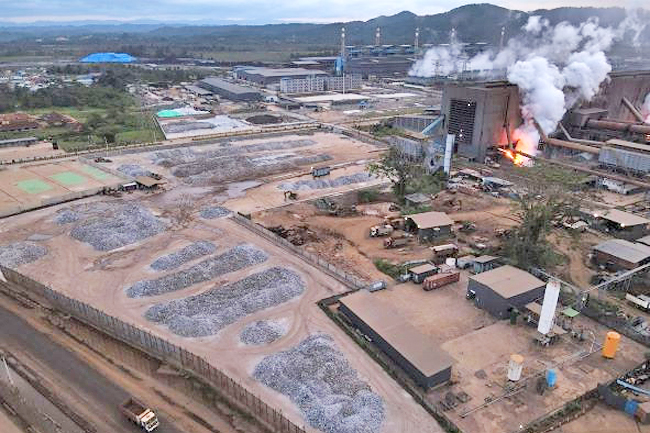THE JAKARTA POST – The recent decision of the panel of the World Trade Organization (WTO) Dispute Settlement Body against Indonesia’s policy of banning raw nickel export should not in any way distract the government’s focus on its well-designed strategy to develop the processing of nickel and other minerals in the country.
The government should instead appeal against the verdict of the panel which ruled in favour of the European Union’s complaint that the Indonesian raw nickel export ban imposed since January 2020 violated WTO rules.
Indonesia, as a sovereign country, shall abide by the 1945 Constitution, which stipulates that land, waters and natural resources are controlled by the state and shall be managed and used to the greatest benefit of the people.
Processing nickel within the country will optimise the value added of that mineral.
True, Indonesia, as a member country of the WTO, must also abide by WTO rules, but many of these multilateral trade watchdog rules are often subject to different interpretations in line with the national interests of its members, as exemplified in the case of the raw nickel export ban.

The export ban has been welcomed by many of the international business communities as evident in the tens of billions of dollars of foreign investment pouring into the nickel refining industry in Indonesia over the past three years.
The number of nickel processing plants has more than doubled from 10 in 2014 to 21 in 2022, according to the Energy and Mineral Resources Ministry. A dozen more refineries are under construction mostly in Sulawesi and the Halmahera islands. The export ban also has catapulted refined nickel export earnings from USD1 billion in 2014 to almost USD21 billion last year.
The nickel industry development has dramatically expanded on the back of the rising international demand for electric vehicles (EV) as part of the global campaign to reduce fossil fuel consumption.
As nickel provides 60 per cent of the materials for car batteries, global demand for refined nickel – formerly used mostly in the steel industry – will exponentially increase due to that mineral’s key role in the energy transition.
Hence, as the world’s largest nickel producer and the country with the biggest nickel reserves, it is commercially and environmentally viable for Indonesia to develop production capacity along the EV supply chain.
The nickel strategy has become part of the country’s goal to build an integrated EV supply chain, from mining and processing to battery production and eventually EV manufacturing.





